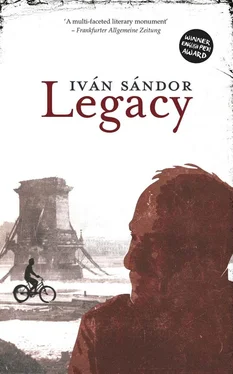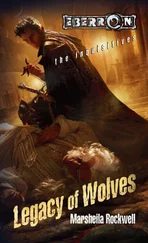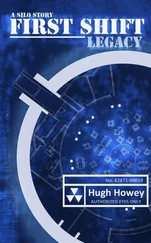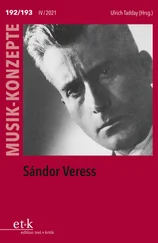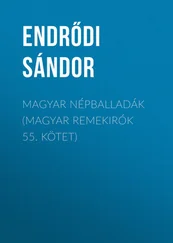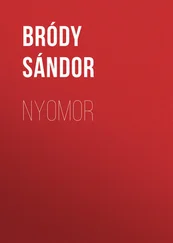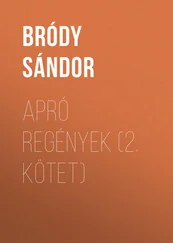I hope that what she reads about herself will not be without interest to her. I sense that she wished to have herself seen by another’s gaze. While she reads about herself, I write, she will also encounter another story.
For weeks I have been looking in music shops and secondhand bookshops in search of a book on or guide to Schubert’s chamber music. Unsuccessfully. I listen to the ‘Allegro’ passage of the C major Quintet . The music is also a story. I am seeking a similarity between the story that can be voiced and the story that lives in me. It is not to be found in the sublime, although the more times I hear it the more strongly I doubt as to whether this is really true. The radiant sorrow of the ‘Allegro’ can master an inability to remember, gliding over the crevasse of the past by filling it with a sense of boundlessness, and it comes to mind that Carl Lutz noted down something similar.
I shall make a trip to the cemetery and look for the grave of Györgyi’s mother. Does it resemble my description?
It is possible Györgyi was present at Luca’s funeral, although I didn’t recognize her. Four, five years ago, would that have been?
Ten degrees below zero. January. There would have been around twenty of us in the unheated mortuary. It is quite a long walk in deep snow to the freshly dug grave. I can’t see any familiar faces; she might have been there. Warm shawls and black fake-fur coats; hats pulled down over foreheads. Luca’s daughter looks older than her mother had done.
We stand speechless in the snow. I see everyone looking as lonely as Luca had been. The bare trees are lonely, the snow-bound gravestones, too.
I walk across to my parents’ grave. I don’t normally come out to the cemetery in winter. I sweep the snow off the gravestone with one hand; I would like to clear the lettering at least. Two steps away is the grave of my maternal grandparents. Black marble with gold letters. Under my grandfather’s that of Grandmother: 1874–1945. It does not say that it was January. The date, too, I was told by Mother. My grandmother died on 6 January in the ghetto, in the cellar of a house on Dob Street, maybe a hundred metres from the house where my grandfather was born in 1871. Next to their grave is Gizi’s. There are many inscriptions on the stone. Alongside Józsi’s rank as a military officer it is also inscribed that he died of poor health following an injury during the First World War. After my father died Mother used to bring flowers for all three graves; now, since Mother’s death, I also place a stem on my grandparents’ and Gizi’s gravestones.
The three graves are within six paces of each other. I step into the footsteps of those stepping in the footsteps of Grandmother, Father, Mother, Gizi.
How many times have I made those six paces?
Gizi left nobody. Mother had her name incised on her gravestone.
She would now be one hundred years old, if she were alive. Her husband was young when he died, her daughter was young when she died, her lover and her friends were young when they died, Bőzsi was young when she died. Apart from me, there is now no one who can remember Gizi. As regards her story, the story of others on the basis of her story, the once-fourteen-year-old boy is the only one who has any knowledge, only he is able to write such words.
I can see in the way Mother looks that she is unable to separate in her own mind Gizi’s various expressions.
The two young girls are strolling in Kálmán Tisza Square. 7One is six years old, the other seven. Both are wearing white lace gloves as they stroll. A third girl, no older than them, is coming from the direction of the Városi Színház. 8Hey, do you want to come and play with us? Gizi hails her. Mother repeats the question. The young girl sets off to play with them.
Decades later they can still giggle about it.
Even in her old age she combed her hair like … says Mother.
Like who? I ask Mother severely. I am trying to get her to realize that she is not finishing her sentences.
Gizi, of course.
And how did she comb it?
Why, the same way as Bőzsi, she says, and saying it as if she did not understand why she has to repeat herself. Did you never notice that the hand gesture she made when she swept her hair aside was the same as Bőzsi’s? You know, I think that what was important to Gizi later on was not what she said but having someone to say it to. Once I sat with her up in the café on Castle Hill, and she said, You know, Rosie, I ought to take a trip to Switzerland to see Gertrud or Carl Lutz — she said Gertrud or Carl because they had divorced by then; Gizi had heard about it. I ought to take a trip and have a talk with them. And when she said it, says Mother, her look was just like that of someone who had no interest in what had happened to Gertrud or Carl Lutz, and she was not interested what she was saying, just in talking about it with someone.
It was not hard for me to picture Gizi’s face when she says this to Mother, because Mother’s expression was also like that of someone for whom, similarly, it was more important just to be able to talk with me than what was actually said.

Gertrud places the gifts she has prepared for colleagues and staff of the legation under the Christmas tree. Continuous din of weaponry from the Pest side. She had managed to bring back a Christmas tree from Bicske, and she had thought about candles well before. She would not allow Gizi to leave. Not long before, a barrage of mortar shells had hit the neighbouring building. Carl Lutz helps to light the candles and joins in the singing of ‘Silent Night’. He records that in his diary, as well as the fact that he had been informed that both Adolf Eichmann and Kurt Becher had left Budapest.
The cannon fire dies down around midnight. Just two of them are left by the Christmas tree, Gertrud and Gizi. Gertrud relights one of the candles. They remain wordless until it has burned down. Darling, does it matter if I ask you about your husband? No, why would it matter? You never spoke about him; you only mentioned Karol. Károly, Gizi corrects her. Admittedly, I never said anything to you about my husband. Oh yes you did, says Gizi, about your travels, about Palestine, you did. Gertrud laughs. More intimate things, I meant, darling.
Józsi was always very plucky, says Gizi. It took pluck just to dare to ask my father for my hand in marriage. It was also pluck that he was willing to fight a duel when my honour was insulted.
Gizi senses, though, that Gertrud is not interested in what Józsi said when stood to attention, his officer’s shako in hand, in front of his future father-in-law or when he named his seconds for a duel. It is pleasing to recall her father’s cigar smoke, pleasing to think of Józsi at the family banquet of Seder, drinking his third glass of wine and trying to peck Bőzsi on the cheek.
Gertrud, too, must clearly sense what Gizi feels, as she does not enquire about things that Gizi obviously does not wish to talk about. You know, darling, she says, Carl was never plucky. He lacks those masculine traits. Gizi nods, finding what Gertrud is saying interesting, but right now nothing comes to mind about Carl Lutz other than that before lighting the candles on the Christmas tree he signed the family’s safe-conduct papers covering four names, with which, if possible, she will set off to the Alice Weiss Hospital at cockcrow.
Not that I can complain, says Gertrud. My life with Carl is certainly interesting, but I do envy you a little, darling, for being able, no-big-deal, to gain more experience in the sphere of men. Gizi muses that she does not know how much of that pluck would have remained with Józsi if he had been faced with the situations that Carl Lutz had faced. And I am envious of you for not having had to gain more experience in the sphere of men, she says.
Читать дальше
